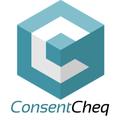
HashAxis
HashAxis is a global NFT marketplace built on the Hedera network, designed for buying, selling, and discovering digital collectibles and non-fungible tokens (NFTs). It leverages the Hedera Token Service (HTS) to mint, manage, and trade NFTs and is supported by the HBAR foundation.
A key advantage of HashAxis is its utilization of Hedera's low and predictable transaction fees, high-speed performance (capable of 10,000 transactions per second), and carbon-negative footprint. This makes creating, buying, and selling NFTs comparatively more accessible and environmentally friendly. HashAxis also supports native Hedera functionalities including “atomic swaps” for secure peer-to-peer trading and on-chain royalty payments, which provide automatic compensation to creators for secondary sales.
HashAxis integrates “Filecoin” for decentralized NFT storage and is one of the only NFT marketplaces to offer a streamlined, no-code interface for users to engage with digital collectibles across various categories, including art, profile pictures and more.
Project Information
Related Projects

Power Transition is a UK-based clean technology company founded in 2018. Its focus is on accelerating the global shift to a zero-carbon economy by providing a smart software platform that optimizes and decentralizes energy systems.
The core of Power Transition's service is its Digital Energy Platform, a revolutionary energy resource management system that uses distributed ledger technology (DLT) to enable the tokenization of energy. This platform provides a common language for energy transactions and trading, allowing millions of devices, from electric vehicles to smart home appliances, to become active participants in the energy system. Key services include Smart MicroGrid Services, which enable peer-to-peer energy trading within a community, and Electric Vehicle Integration Services, which provide a single point of billing and data validation for EV fleet operators.
Power Transition's entire platform is built on the Hedera network. It leverages the Hedera Token Service (HTS) and the Hedera Consensus Service (HCS), Power Transition to tokenize and energy use, providing a transparent and auditable record of all transactions.

Nexera is a technology company building infrastructure to unite traditional and decentralized finance. Its core mission is to enable the tokenization of real-world assets within a compliant and institutional-grade framework, addressing key barriers that have slowed widespread adoption of blockchain in capital markets.
The cornerstone of this vision is the Nexera Chain, a Layer 1 blockchain specifically designed to be compliance-ready from the ground up. The chain integrates all essential elements for institutional use, including robust tools for regulation and compliance. This is powered by Compilot.ai, an engine that automates complex legal and regulatory demands such as KYC, KYB, and AML into straightforward, AI-driven workflows. The architecture ensures that institutions can meet rigorous standards like MiCA without relying on fragmented third-party solutions.
A critical feature of Nexera's ecosystem is its focus on interoperability, allowing for fluid asset transfers and transparent data flow between public blockchains, private networks, and legacy financial systems. The protocol’s cross-chain capabilities are secured in part by the Hedera Consensus Service (HCS). HCS is used as a trust layer to verifiably and transparently log transactions that occur across different networks, ensuring a secure and auditable record of all activity.

ConsentCheq, a service by PrivacyCheq, is a consent management platform that helps businesses comply with global privacy regulations such as GDPR, CCPA, and COPPA. Since its launch in 2016, the company has focused on providing a "single source of truth" for user consent, enabling enterprises to manage and honor user privacy preferences in real-time across all their systems.
The core of ConsentCheq's service is a full-stack transparency and consent management solution. It provides tools for businesses to deliver clear privacy notices and to capture, log, and manage user consent for data collection and processing. A key feature is the "Consent Dashboard," a centralised interface where users can view and control their privacy settings for any business that uses the ConsentCheq service. The platform also offers "Consentive," an incentive-based system where consumers can be rewarded with micropayments for granting consent, which is designed to increase opt-in rates for data processing.
ConsentCheq's connection to the Hedera network is central to its "Consentive" service. The platform uses the Hedera Consensus Service (HCS) to create a high-throughput, low-cost, and auditable log of consent verification and payment events. Under privacy laws, advertising networks must verify consumer consent each time they process or track them.
.avif)
Carbon Central, developed by Australian tech firm NoviQTech, is an enterprise-grade software platform designed to help large organizations manage the complexities of carbon accounting and environmental, social, and governance (ESG) reporting. The platform provides a unified, end-to-end solution for companies to measure, analyze, and report on their environmental footprint, particularly their Scope 1, 2, and 3 carbon emissions. It aims to replace disparate spreadsheets and manual data collection methods with a single, auditable system of record.
The platform is built on the Hedera network, leveraging its technology to bring a high level of integrity and trust to the ESG data management process. A key feature of Carbon Central is its use of the Hedera Consensus Service (HCS) to create an immutable and verifiable audit trail. As enterprises input emissions data, supplier information, and other critical ESG metrics into the platform, a cryptographic hash of that data is submitted to the Hedera public ledger. This process provides a tamper-proof timestamp and a transparent, auditable record that can be securely shared with and verified by regulators, investors, and other stakeholders.
